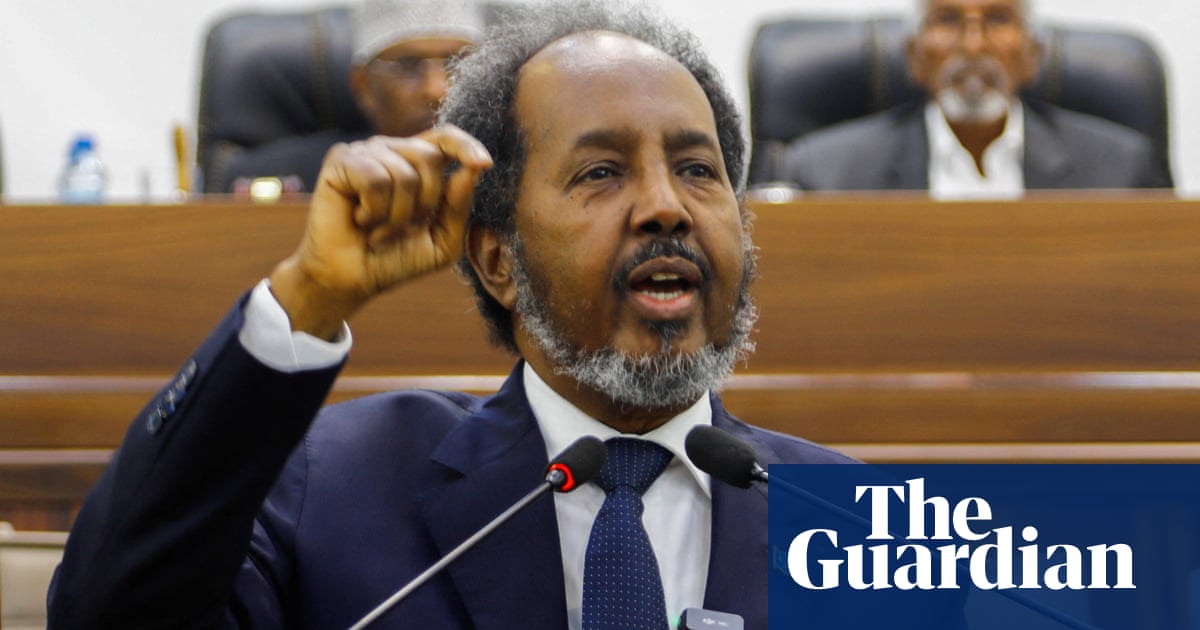
The country of Somalia has pledged to protect its land using all lawful methods and has called back its ambassador to Ethiopia in response to a recent agreement made between Addis Ababa and the independent region of Somaliland.
The city of Mogadishu denounced the unexpected agreement, which would grant Ethiopia access to the Gulf of Aden, as a violation of its sovereignty. It urged the global community to support its position.
The government declared that it was seeking assistance from organizations such as the UN, African Union, Arab League, and Intergovernmental Authority on Development in East Africa to support Somalia’s right to protect its sovereignty and pressure Ethiopia to comply with international laws.
On Monday evening in Addis Ababa, it was announced that a deal had been reached, just days after the central government of Somalia agreed to restart discussions with the northern separatist region, ending a long period of inactivity.
Since declaring independence from Somalia in 1991, Somaliland has been striving for full recognition as a state. However, this has been met with strong opposition from Mogadishu and is not acknowledged by the international community.
Ethiopian Prime Minister Abiy Ahmed and Somaliland leader Muse Bihi Abdi have signed a memorandum of understanding, granting Ethiopia access to the port of Berbera and a military base.
The specifics of what Somaliland would receive in exchange are not clear. Bihi stated that the agreement included recognition from the international community, but a statement shared on the Ethiopian prime minister’s social media account did not mention recognition, only a commitment to work together for mutual benefit based on reciprocity.
The complete terms of the agreement have not yet been verified by Ethiopian authorities.
The agreement was praised as a significant development by Ali Hassan Mohamed, the Minister of Information in Somaliland.
However, this ignited anger in Somalia and, in an unusual show of solidarity among the country’s political leaders, received criticism from multiple former heads of state.
The Somali cabinet stated on Tuesday that Somaliland’s actions are in direct violation of Somalia’s sovereignty and unity, as it is considered a part of Somalia according to the Somali constitution.
The deal was deemed “invalid and lacking any legal justification” and Somalia refuses to acknowledge it, the statement stated. “In light of this, the Somali government has summoned back its ambassador in Ethiopia for discussion.”
The prime minister of Somalia, Hamza Abdi Barre, urged the citizens to remain peaceful in a recent national speech.
“I would like to assure you that our dedication to protecting our nation remains unwavering. We will not tolerate any encroachments on our land, sea, or airspace. We will use all lawful measures to defend our territory… It is imperative that we come together and set aside our divergences in order to safeguard our land, honor, and independence.”
Somalia’s upper house speaker, Abdi Hashi, a seasoned MP from Somaliland and longtime member of Somalia’s parliament, stated: “The waters of Somalia are not a commodity that can be sold like an animal.”
Omar Sharmarke, a former prime minister, described the agreement as a “provocation” by Ethiopia, and Mohamed Farmaajo, a former president, called it “a “serious concern for Somalia”.
The agreement occurred several months after Abiy declared that his nation, the second largest in Africa by population, would assert its entitlement to access the ocean, causing worry among neighboring countries.
After Eritrea gained independence in 1993 following a 30-year war, Ethiopia became landlocked and lost access to the coast.
Addis Ababa had maintained access to a port in Eritrea until the two countries went to war in 1998-2000, and since then Ethiopia funnelled most of its trade through Djibouti.
The economy of Ethiopia has been limited due to its inability to reach the Red Sea, a small body of water between Africa and the Arabian Peninsula. Located on the southern coast of the Gulf of Aden, the port of Berbera provides an African hub that leads to the Red Sea and beyond to the Suez Canal.
Somaliland, a territory once under British protection and home to 4.5 million individuals, has the ability to produce its own currency, distribute its own passports, and establish its own governing body.
Despite being viewed as a symbol of stability in the tumultuous Horn of Africa, Somaliland’s efforts to establish statehood have not been acknowledged by the international community, resulting in economic struggles and isolation.
Last summer, the challenges of the region were highlighted when pro-unionist communities in the eastern part of the autonomous area took control of a regional capital and established a separate administration aligned with the federal government of Somalia.
Source: theguardian.com

















